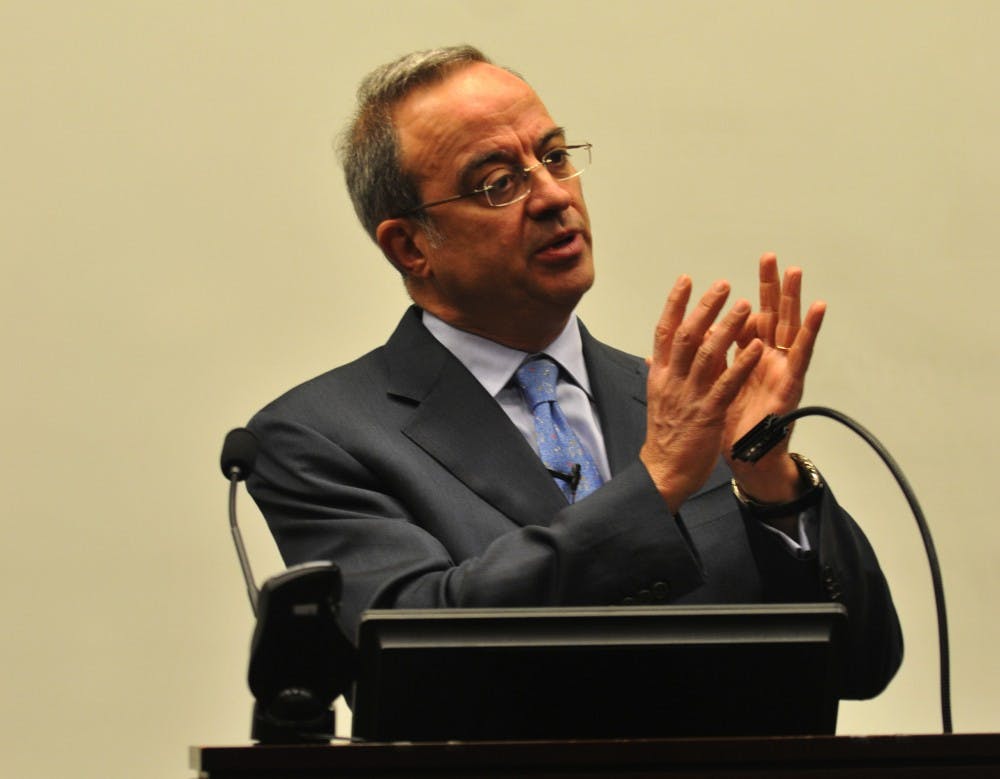According to one expert, the Arab Spring is set to spring on indefinitely.
On Wednesday evening, the Law School hosted Marwan Muasher to speak on “The Arab Awakening: One Year On.” Muasher’s career has spanned stints with the Jordanian ministry, diplomatic service and the World Bank. He played a role in developing the Arab Peace Initiative and the Middle East Road Map.
The talk drew a crowd of 90 with representation from several Penn professional, graduate and undergraduate schools. Law student Eric Lorber, president of the National Security Society, which sponsored the event, said the group was interested in bringing Muasher and other “players in the field” to Penn to provide expert insight on developments in the Arab world.
For Jim McGann, assistant director of the International Relations program, “any effort to bring a greater understanding of these dramatic events is critical.”
In prepared remarks, Muasher touched upon a variety of Middle East topics. He began by renaming the Arab Spring, calling it an “Arab Awakening,” and said that Islamic regimes are losing popularity. Parties with plans for institutionalizing economic advancement through political reform will succeed, Muasher said. Newer leaders will also improve education because, Muasher said, “Teaching people to think critically might give you headaches, but headaches are better than revolutions.”
Speaking on the ongoing Arab-Israeli conflict, Muasher claimed that the Israeli government must accept a two-state solution now or make larger concessions later. He cited Israeli government findings that there are equal numbers of Jews and Arabs in the country, but, in his opinion, higher Arab birthrates will cause Israel to lose its character as a Jewish state.
Using vivid imagery, he described the Arab world as a “burning building.” The region’s old political structures cannot outlast ongoing democratization, Muasher said. Arab officials who one year ago had publicly ridiculed hopes for democratic uprisings are “silent today,” he said.
Assuring listeners of his realism, Muasher concluded with an image of the future Arab world as “pluralistic and prosperous,” embracing ethnic and political diversity.
Many attendees expressed profound personal interest in the talk’s content. “I was in Israel during the Syrian uprising and the Libyan Civil War. I lived near the Jordanian border and saw events firsthand,” said College freshman Josh Spector, who attended the talk to get a “different, deeper perspective on the politics of the Arab Spring.”
The speaker’s views were “not a position many of us had considered before,” said Lorder.
For Penn Law Associate Dean for International Affairs Amy Gadsden, Muasher’s talk was an “opportunity to reflect upon events in the year past and think about the road forward.”



